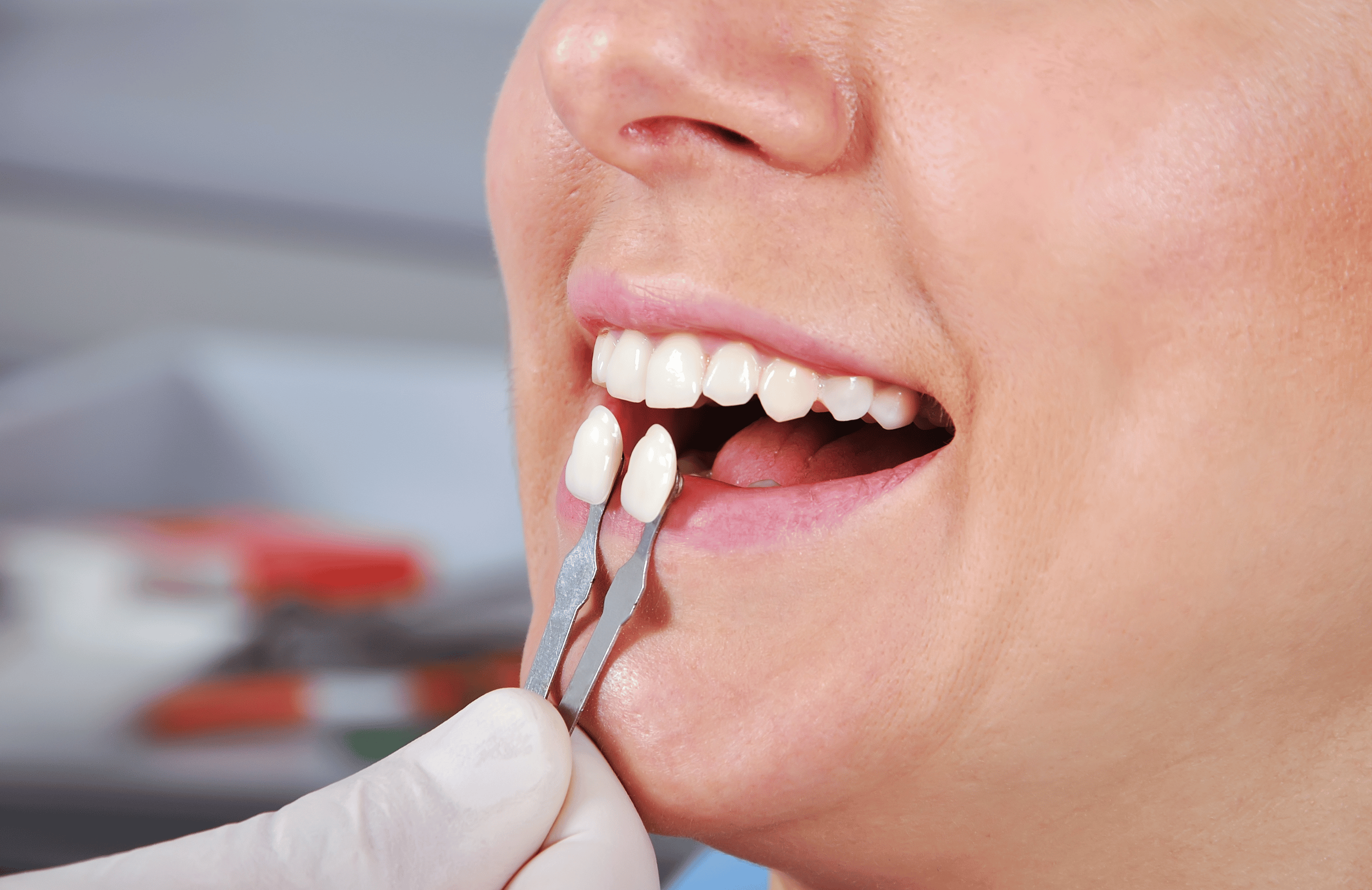Crowns
Crowns
Dental crowns are a versatile and durable solution for restoring the function and appearance of damaged or weakened teeth. Whether due to decay, injury, or aesthetic concerns, crowns can provide a long-lasting fix that blends seamlessly with your natural teeth. At Ipswich Dental Specialists, we offer high-quality, custom-made crowns that are designed to match your smile perfectly.

What Are Dental Crowns?
A dental crown is a cap that is placed over a damaged tooth to restore its shape, size, strength, and appearance. Crowns fully encase the visible portion of the tooth above the gum line, providing protection and enhancing the tooth’s functionality. Crowns can be made from various materials, including porcelain, ceramic, metal, or a combination of these, depending on the patient’s needs and aesthetic preferences.
When Are Dental Crowns Needed?
Dental crowns are recommended for a variety of reasons, including:
- Protecting a weakened tooth: A crown can shield a tooth that is weakened by decay or has undergone root canal treatment, preventing it from breaking.
- Restoring a broken or severely worn tooth: Crowns can rebuild a tooth that is cracked, chipped, or excessively worn down.
- Covering and supporting a large filling: When a tooth has a large filling and not much natural tooth structure remains, a crown can help hold the filling in place and protect the tooth.
- Improving the appearance of a tooth: Crowns are often used to enhance the appearance of discoloured, misshapen, or irregularly sized teeth.
- Securing a dental bridge: Crowns are used to anchor a dental bridge, filling the gap left by a missing tooth.
- Covering a dental implant: A crown is placed over a dental implant to replace a missing tooth.
The Dental Crown Procedure
The process of getting a dental crown typically involves two visits to the dentist:
- Consultation and Preparation: During your first visit, the dentist will examine your tooth and take X-rays to assess the health of the tooth’s roots and surrounding bone. If the tooth is suitable for a crown, the dentist will numb the area and shape the tooth to make room for the crown. If there is significant decay or damage, the tooth may need to be built up with filling material first. After the tooth is prepared, the dentist will take an impression of the tooth and the surrounding teeth. This impression is sent to a dental laboratory, where your custom crown will be crafted to match the colour, size, and shape of your natural teeth. A temporary crown is placed over the prepared tooth to protect it while your permanent crown is being made.
- Fitting and Cementing the Crown: On your second visit, the temporary crown is removed, and the permanent crown is checked for fit and colour. If everything is satisfactory, the dentist will cement the crown in place. Once in place, the crown fully restores the tooth’s function and appearance.
Types of Dental Crowns
At Ipswich Dental Specialists, we offer a range of crown materials to suit different needs:
- Porcelain Crowns: These crowns are highly aesthetic, making them ideal for front teeth. They mimic the natural translucency of tooth enamel and are stain-resistant.
- Porcelain-Fused-to-Metal (PFM) Crowns: These crowns combine the strength of metal with the appearance of porcelain. They are often used for both front and back teeth.
- All-Ceramic or All-Porcelain Crowns: These crowns provide a metal-free option that offers a natural appearance, making them suitable for patients with metal allergies.
- Gold or Metal Crowns: Although less common today due to their appearance, metal crowns are extremely durable and are often used for molars that endure heavy chewing forces.
Frequently Asked Questions About Dental Crowns
With proper care, dental crowns can last between 10 to 15 years or even longer. Their lifespan depends on factors such as oral hygiene, the material used, and how much wear and tear the crown is exposed to.
Crowns do not require special care beyond good oral hygiene practices. Brushing twice a day, flossing daily, and regular dental check-ups will help ensure the longevity of your crown. Avoid chewing on hard objects like ice or pens to prevent damage to the crown.
Yes, crowns are custom-made to match the colour, size, and shape of your natural teeth. Our dentists take great care in designing crowns that blend seamlessly with your smile.
The crown procedure is usually painless as it is performed under local anaesthesia. You may experience some mild discomfort or sensitivity after the procedure, but this typically subsides within a few days.
No, crowns do not respond to teeth whitening treatments. If you are considering whitening your teeth, it is advisable to do so before getting a crown so that the crown can be matched to your newly brightened teeth.
If your crown becomes loose or falls out, contact your dentist immediately. Avoid chewing on that side of your mouth until you can have the crown re-cemented or replaced.
While dental crowns are generally safe, there are some potential risks, such as increased sensitivity, gum irritation, or the crown becoming loose. These issues are rare and can usually be addressed by your dentist.
If decay occurs under a crown, it may need to be removed, treated, and replaced. Regular dental check-ups can help prevent such issues by allowing your dentist to monitor the health of the crowned tooth.
Book Your Consultation Today
If you have a damaged or weakened tooth, a dental crown can provide the protection and aesthetic improvement you need. Contact Ipswich Dental Specialists to book a consultation and learn more about how dental crowns can help restore your smile’s function and beauty. Our experienced team is dedicated to providing high-quality, personalised care to meet your unique dental needs.

